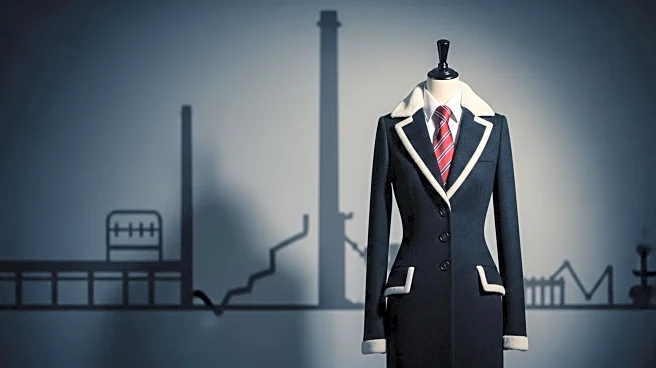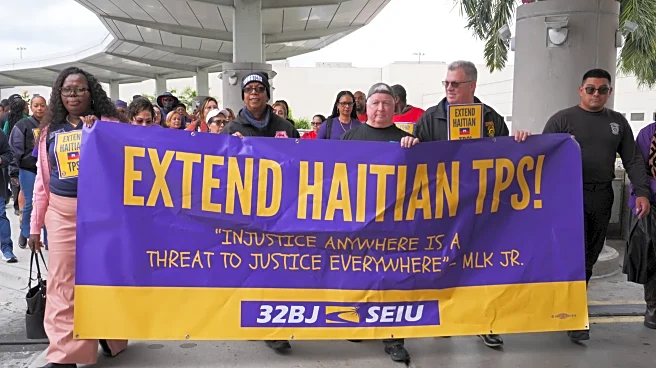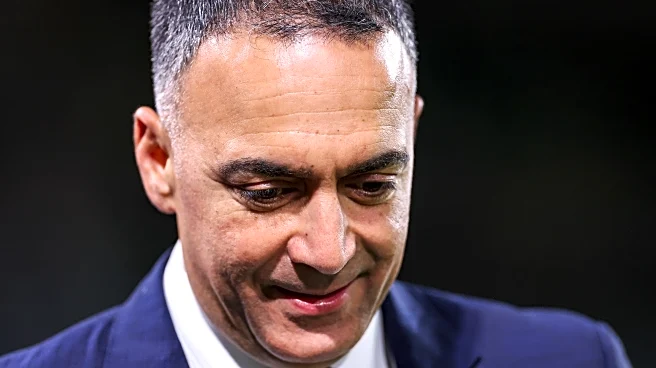What is the story about?
What's Happening?
The Italian fashion industry is currently grappling with a significant downturn in luxury demand, as highlighted during a private breakfast organized by the Camera Nazionale Della Moda during Milan Fashion Week. Industry leaders, including those from OTB Group, Zegna Group, and Max Mara, expressed concerns over declining store traffic and overall business performance, marking the worst period since 2008. Additionally, the sector is under scrutiny due to a Milanese investigation revealing worker rights abuses in the supply chains of major fashion labels such as Armani, Dior, Valentino, and Loro Piana. Despite these challenges, there are positive developments, such as the successful debut of Demna as Gucci's creative director and Prada's vibrant women's show.
Why It's Important?
The current challenges facing the Italian fashion industry have significant implications for the global luxury market, as 'Made in Italy' products account for a substantial portion of luxury goods worldwide. The downturn in demand and allegations of labor exploitation could tarnish the reputation of Italian craftsmanship, potentially affecting consumer trust and sales. The industry's response to these issues will be crucial in maintaining its global standing and addressing ethical concerns. The situation also highlights the broader economic pressures on luxury markets and the need for sustainable and ethical practices in fashion supply chains.
What's Next?
The Italian fashion industry may need to implement measures to address the labor concerns raised by the Milanese investigation to restore its reputation. Additionally, industry leaders might seek to innovate and adapt to changing consumer preferences to revive demand. The ongoing scrutiny and potential regulatory actions could lead to reforms in labor practices. Meanwhile, the success of new creative directions, such as those at Gucci and Prada, could provide a blueprint for revitalizing the sector.
Beyond the Headlines
The issues facing the Italian fashion industry underscore the complex interplay between economic pressures and ethical business practices. The scrutiny over labor conditions may prompt a broader industry-wide reflection on sustainability and corporate responsibility. This could lead to long-term shifts in how fashion brands operate, with increased transparency and accountability becoming central to maintaining consumer trust.
















